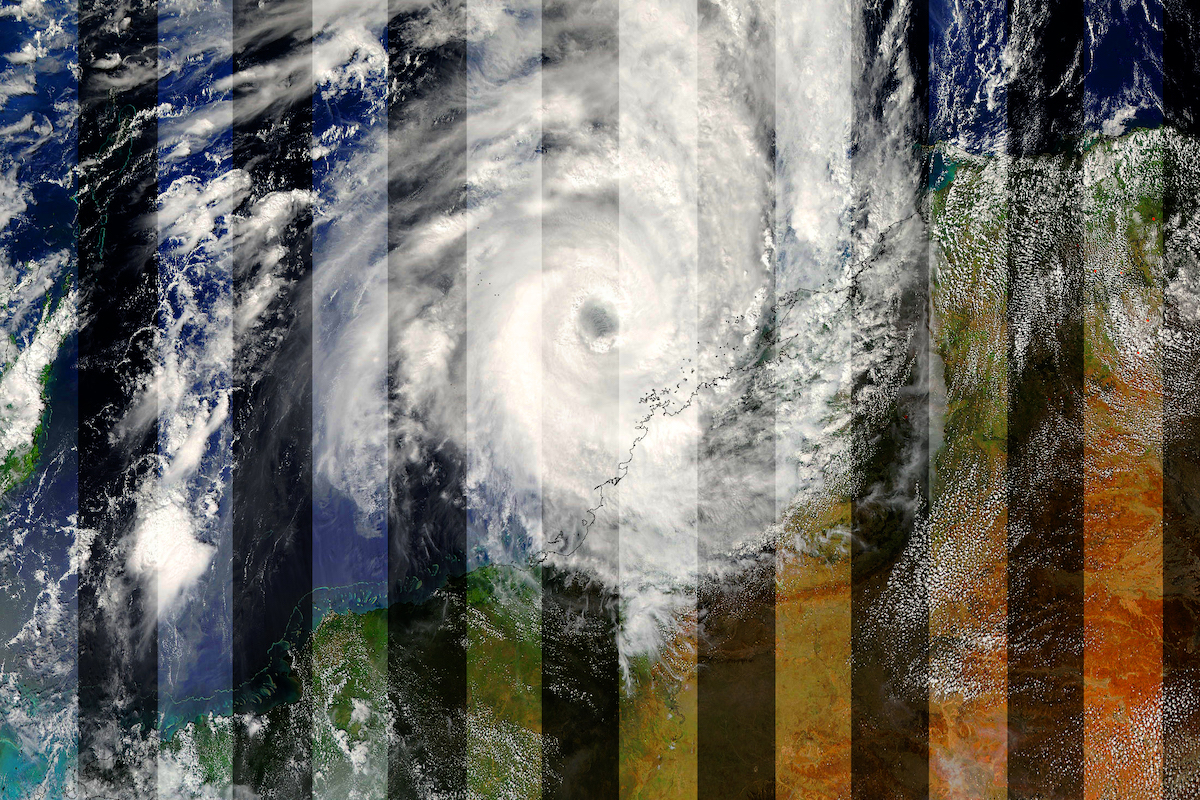 April 22, 2020 12:22 pm
Published by Climate Extremes
April 22, 2020 12:22 pm
Published by Climate Extremes
CLEX authors and colleagues from major Australian science organisations investigating climate examined the simulation of Australian climate in the new, state-of-the-art Coupled Model Intercomparison Project, phase 6 (CMIP6) models.
 April 16, 2020 10:06 am
Published by Climate Extremes
April 16, 2020 10:06 am
Published by Climate Extremes
New research finds Okubo-Weiss-Zeta parameter scheme has superior performance detecting tropical cyclone frequency characteristics compared to the CSIRO tracking scheme.
 April 15, 2020 3:18 pm
Published by Climate Extremes
April 15, 2020 3:18 pm
Published by Climate Extremes
Most climate models correct for current SSTs but don't correct for the reliability of future SSTs. This study shows that making that additional correction has a profound impact on how tropical cyclones will develop in a warmer world.
 April 1, 2020 10:00 am
Published by Climate Extremes
April 1, 2020 10:00 am
Published by Climate Extremes
A lot has happened over the past few months with the publication of high-profile and challenging research and the continuing growth, development and recognition for the RP4 team.
 April 1, 2020 8:00 am
Published by Climate Extremes
April 1, 2020 8:00 am
Published by Climate Extremes
Research over the past few months has given the RP2 team significant insights into sudden stratospheric warming events, modelling of marine heatwaves, the impacts of transient warming, how drying tends influence heatwaves, and future energy use in cities as the globe warms.
 March 10, 2020 11:08 am
Published by Climate Extremes
March 10, 2020 11:08 am
Published by Climate Extremes
In this study, CLEX researchers and colleagues tested the ability of 10 terrestrial biosphere models to reproduce observed sensitivity of ecosystem productivity to rainfall changes (rainfall exclusion/irrigation) at ten sites across the globe.
 March 9, 2020 3:03 pm
Published by Climate Extremes
March 9, 2020 3:03 pm
Published by Climate Extremes
Using a simplified climate model, researchers forced the south polar winds to reverse arbitrarily and found that the final impact at the surface is indistinguishable from events where the winds reverse in response to natural phenomena.
 February 13, 2020 12:09 pm
Published by Climate Extremes
February 13, 2020 12:09 pm
Published by Climate Extremes
Using a novel methodology applied to CMIP5 projections CLEX researchers found that the local temperatures experienced by 90% of people would be substantially higher in a transient (still warming) climate than an equilibrium climate where the temperatures have plateaued, for the same global temperature.
 February 11, 2020 4:25 pm
Published by Climate Extremes
February 11, 2020 4:25 pm
Published by Climate Extremes
In this work, CLEX researchers compared the performance of three ocean simulations – with low, medium and high resolutions – when representing marine heatwaves.
 November 26, 2019 10:26 am
Published by Climate Extremes
November 26, 2019 10:26 am
Published by Climate Extremes
Solar heating of surface waters in the tropical Indian and Pacific oceans, along with turbulent mixing that moves this heat into the colder deep-reaching Atlantic meridional overturning circulation, play a crucial role in shaping oceanic heat transport pathways










